Croatian President to Instruct Ambassador to be Against Finland and Sweden in NATO
ZAGREB, 18 May 2022 - President Zoran Milanović said on Wednesday that he would instruct Croatia's Permanent Representative to NATO, Ambassador Mario Nobilo, to vote against the admission of Finland and Sweden to the alliance until the election law in BiH is amended.
Milanović believes that Croatia should not cease making Finland's and Sweden's membership of NATO conditional on the issue of the equality of Bosnia and Herzegovina Croats in elections.
"That is not an act against Finland and Sweden but it is for Croatia," Milanović insists.
Addressing a news conference in his office, Milanović said that he believed that Croats in BiH as a political entity, are being "destroyed" and that it is in Croatia's national interest to prevent that.
He underscored that he would instruct Ambassador Nobilo to be against that membership.
The Ministry of Foreign and European Affairs last week said that in that case, Nobilo would follow the instructions of the ministry rather than the president's.
Milanović said today that Turkey, which is opposed to the two Nordic countries joining the Alliance, is showing how to fight for national interests.
"Turkey certainly will not move away from the table before it gets what it wants," said Milanović.
He believes Croatia is acting quite the opposite.
"How are we fighting for our interests?" he wondered, adding that after all the peace missions in BiH, there is not one Croatian officer there.
"Why? Because they will not allow that. Not one uniformed Croatian can step in here."
He said that he had called for a meeting of the National Security Council because of the problem of Croats in Bosnia and Herzegovina, but that he had not received a response from the government.
"The government does not have a monopoly on foreign policy," he said.
"We can talk about Ukraine, but that is not a burning problem for us. This is," he said.
He called on the parliament not to ratify the agreement on the accession of Finland and Sweden to NATO. "I will talk about this until the last moment and warn that the Sabor has the last word."
He is convinced that that would turn the international community's attention to Croatian interests and that is the only way for Croatia to resolve this "serious problem in BiH."
If the Sabor doesn't ratify it "at that moment unbelievable interest for Croatia's problem would arise," he said.
He added that he wants to avoid any possible reaction by Bosnia and Herzegovina Croats to an unfair election law and consequently proclaim a Croat self-government in BiH.
"I want Croatian interests in BiH to be modified within the framework of the Dayton (Peace Accords)."
He rejected the prime minister and foreign minister's criticism that he was damaging Croatia's reputation.
"If I am to be blamed I am prepared to be. I have said that Croats in BiH are more important to me than the entire Russian-Finish border," Milanović underscored.
"Let's look at what Turkey is doing," he added.
"It certainly will not go empty-handed yet it is seeking a lot. While we are seeking very little in BiH, a country for which we are guarantors in the Dayton (Accord)."
For more, check out our politics section.
Foreign Minister: Finland and Sweden's NATO Aspirations Have Croatia's "Unreserved" Support
ZAGREB, 18 May 2022 - Croatia's Foreign Minister Gordan Grlić Radman said on Wednesday that Finland and Sweden have Croatia's unreserved support for their NATO membership bids, adding that he has instructed Croatia's Ambassador to NATO to endorse the two countries' NATO applications.
"During an informal meeting of NATO foreign ministers in Berlin last weekend I said on behalf of the Croatian government that we give our unequivocal and unreserved support to those countries," Grlić Radman told Croatian Radio.
He recalled that because of Russia's invasion of Ukraine and the consequent reconfiguration in the global order, two traditionally neutral countries have decided to seek security in NATO which guarantees that security for its member states.
"They feel threatened and are welcome in the Alliance, considering their potential, they will strengthen NATO's democratic standards and overall potential (...). Croatia's Ambassador to NATO in Brussels, Mario Nobilo, has my instructions to approve Finland and Sweden's membership application and he will be given power of attorney to sign a protocol that will follow in the next few days," Grlić Radman said, adding that "some consultations with Turkey are still under way."
Turkey has threatened to block Sweden and Finland's accession to NATO unless they fulfil Ankara's demands. Ankara wants the two countries to stop supporting terrorist groups, primarily the Kurdistan Workers' Party (PKK), and provide clear security guarantees as well as abolish restrictions on arms exports to Turkey.
Grlić Radman said that after their application is approved, the parliaments of NATO member states are required to ratify the relevant agreement.
"I am absolutely certain that the Croatian Sabor will ratify the agreement when it arrives from Brussels in Zagreb," he said.
Commenting on statements by President Zoran Milanović that Croatia should block the two countries' accession until such time that the election law in BiH is amended, Grlić Radman said that was "blackmail" and "un-European."
He added that the Andrej Plenković government is fighting the most for the status of the Croat people in that country.
"The rights of the Croat people are achieved through legal mechanisms, political and diplomatic efforts and not blackmail (...). The President is ruining our international reputation with his statements and causing political damage that can jeopardise our national interests," Grlić Radman added.
He reiterated that a stable BiH is a strategic interest for Croatia, underscoring that if the election law is not changed, a security problem could emerge in Bosnia and Herzegovina after the election.
"Being the smallest, the Croat people is trapped between Serb separatism and the hyper-unitarism of high-ranking Bosniaks," Grlić Radman said.
He believes that the visit by European Council President Charles Michel to Sarajevo on 21 and 22 May, who will "try to intercede," will be important.
Speaking about the sixth package of EU sanctions against Russia, Grlić Radman said that there are several countries who are opposed to an embargo on Russian oil imports due to their dependence on Russian energy products.
"The sanctions need to be felt in Russia itself and we are trying to eliminate all the negative effects that the sanctions could have on Europe's economy," he explained.
Commenting on Slovenia's possible blockade of Croatia's accession to the Schengen passport-free area, he said that he doesn't expect Slovenia "to spoil the plans."
"I hope there won't be a step backwards. We have had very good cooperation over the past two years with the Janša government. Croatia's accession to the Schengen Area is for the most part in the interest of Slovenian citizens. I am certain that we will find a common solution with our Slovenian friends," he underscored.
Asked about the fate of a Croatian citizen who joined the Ukrainian forces and has been captured by Russian troops, Grlić Radman said briefly, "It is our duty to return him home," and that the procedure requires "discretion."
For more, check out our politics section.
Jandroković: Milanović's Stances are Pro-Russian, Causing "Surprise and Ridicule"
ZAGREB, 4 May 2022 - Parliament Speaker Gordan Jandroković said on Wednesday in Madrid that President Zoran Milanović's opposition to Sweden and Finland's accession to NATO was a blow to the unity of democratic West against Russia's aggression on Ukraine and that he had pro-Russian stances.
Jandroković was on an official visit to Madrid at the invitation of the President of the Congress of Deputies of Spain, Meritxell Batet Lamaña.
"Being opposed today to Sweden and Finland's accession to NATO is a blow to the solidarity and alliance of the entire democratic Western world against what Russia is doing in Ukraine. That is undoubtedly a pro-Russian stance," Jandroković said.
He added that he doesn't know why that is so and that the President should be asked about that.
"But it is without a doubt that the international community is surprised by his stance and since recently has been ridiculing him," said Jandroković.
Jandroković was heading a parliamentary delegation attending a Croatian-Spanish inter-parliamentary forum in Madrid.
Speaking about Croatian-Spanish relations, he said the two countries have "deepened parliamentary cooperation."
During the forum there was talk about bilateral cooperation, however, the focus was on global issues, such as the pandemic and the Ukraine crisis, he said.
"We share the same stances about the war in Ukraine and are strongly supporting Ukraine and condemning the Russian aggression," said Jandroković.
For more, make sure to check out our dedicated politics section.
Milanović Not Able to Veto Finland's and Sweden's NATO Membership Bids, Says Jutarnji List
ZAGREB, 4 May 2022 - Croatian President Zoran Milanović will not be able to veto Finland's and Sweden's accession to NATO because this will be decided by the ambassadors of the member states and not by the heads of state or government, the Jutarnji List (JL) daily wrote on Wednesday.
Citing government sources knowledgeable about NATO procedures, the newspaper said that Milanović is aware that he will not be in a position to veto the two countries' membership bids because this decision will be made by the North Atlantic Council, which consists of ambassadors from the 28 member states.
Milanović is obviously aware of this because he has said that, in the event that the invitation is extended at a lower level, he might not be able to force the Croatian ambassador to take his position at the Council, Jutarnji List said.
For more, make sure to check out our politics section.
Milanović: Anyone Voting for NATO Expansion Without Reforms in BiH is a Traitor
ZAGREB, 1 May 2022 - President Zoran Milanović on Sunday said that any member of the Croatian parliament who votes for Finland and Sweden joining NATO prior to the election law in Bosnia and Herzegovina being amended is a traitor.
Milanović has already said on several occasions that he is opposed to Finland and Sweden joining the North Atlantic Alliance if the election law in BiH is not amended as it enables the more numerous Bosniaks to outvote the Croats in that neighbouring country.
Speaking in Varaždin where he attended a celebration of International Workers' Day, Milanović reiterated that Croatia has a "historic opportunity" to fight for BiH Croats, which is also in "Croatia's interest and not just a wild wish."
"I will label anyone who votes otherwise (for Sweden's and Finland's accession to NATO) a traitor. And I will label anyone who drinks coffee with them a traitor. There's no other way," said Milanović.
"If I were to speak sleep-inducingly as (PM Andrej) Plenković does... then no one would listen to me. This way, I am taking on the burden of being awful, of people hating me, throwing eggs at me, booing me because I am fighting for a just cause. That is my duty. I am the president and supreme commander," he added.
Rafale jets are attractive but useless
Milanović also spoke about the purchase of 12 Rafale multipurpose fighter jets from France, underscoring that they were overpaid and useless, and that France has not advocated changes to the election law in BiH.
"Where if France's assistance regarding BiH? How much needs to be paid, ten billion euros? Is a billion and a half not enough?" asked Milanović.
He believes that it would have been better for Croatia to have bought a hundred drones and strengthened its air defence. But, he said, Plenković decided personally to buy the jets that are unnecessary for Croatia and "useless" in war but good "for showing."
"What use do we have of 12 Rafales with very little equipment and very few missiles? Do you see how short a jet's lifespan is in a war if they aren't the best?" he said.
He added that Hungary, with ten to twelve interceptors, did not manage to detect a Soviet-produced drone that fell in a Zagreb suburb in March.
For more, check out our politics section.
FM Says Croatia Supports NATO Membership Of Finland, Sweden
ZAGREB, 28 April 2022 - Croatia supports Finland's and Sweden's potential NATO membership, which would strengthen Croatia's security and defence, Foreign Minister Gordan Grlić Radman said on Thursday.
"We feel that the NATO membership of Finland and Sweden will only strengthen our security and our defence," he told the press at Zagreb airport after talks with his Hungarian counterpart Peter Szijjarto, adding that all NATO member states have the same stand on that.
Grlić Radman said that his Finnish counterpart called him two days ago and his Swedish counterpart yesterday, and that he told them he supported "their future application as an important contribution to transatlantic security."
Croatian President Zoran Milanović has said that the Croatian parliament should not ratify the NATO accession of Finland and Sweden until the election law in Bosnia and Herzegovina is changed so that the more numerous Bosniaks do not elect the Croatian member of the Presidency and delegates to the House of Peoples.
According to him, Croatia must use this "historic" chance to fight for BiH Croats' rights and also solve a security issue.
Grlić Radman said today that by joining NATO, Croatia agreed to the open-door policy which envisaged that all countries that met the standards could join if they wanted to.
Szijjarto said Finland and Sweden had not yet applied for membership, but that Hungary would have a positive view if they did.
The two ministers discussed the situation in BiH, with Szijjarto saying that Hungary supported Croatia's position that the Presidency's Croat member must be elected by Croats.
He said that for BiH's stability, it was necessary to respect the will of all three constituent peoples and that Hungary did not support the political campaign and sanctions against the Presidency's Serb member Milorad Dodik.
Grlić Radman said national minorities were a strong link in Hungarian-Croatian relations and that the model of the protection of their rights in the two countries was exemplary.
Speaking of the energy situation in the wake of Russia's aggression on Ukraine, Szijjarto said energy supply was not a philosophical but a physical issue and that Hungary would pay Russian gas so that it reached Hungary.
For more, check out our politics section.
Croatia More and More Sought-After by Swedish Tourists
ZAGREB, Dec 14, 2020 - Croatia is an increasingly attractive destination for holidays in 2021 among Swedes, according to data collected by TUI Nordic tour operator, the Croatian National Tourism Board (HTZ) has recently reported.
Vedran Susic, director of the Croatian National Tourist Board Representation in Sweden, has been quoted as saying on 7 December that twice as many trips were booked in Sweden last week than in the week before that.
Croatia is among several Mediterranean destinations that are chosen most frequently by Swedes for holidays in 2021, the other destinations being Crete, Rhodes, Cyprus and Antalya.
According to HTZ data, from 1 January to 30 November this year, about 41,000 travellers from Sweden visited Croatia and made 228,000 overnight stays, which was equivalent to 15% of their arrivals in 2019.
Stories from the Diaspora: Moving from Osijek to Sweden
December 8, 2020 – Yesterday, TCN reported that Croatia is among the most sought after tourist destinations for people in Sweden. Today, we meet a couple who went the other way – from Osijek to Sweden – for a more permanent stay. How does life compare for young couple Marin and Vedrana?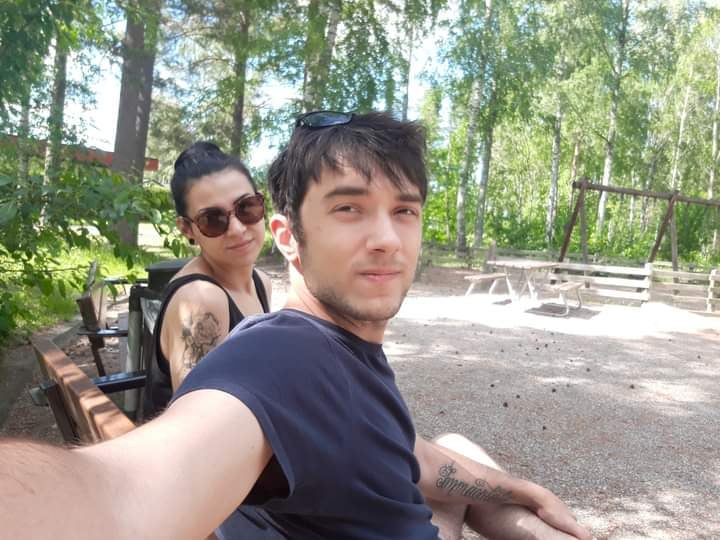
Marin Relja from Darda (25) and Vedrana Maksimovic from Sarvaš (24) swapped Slavonia for Västerås in June of 2019. We interviewed them to find out some of the ways life compares when you move from Osijek to Sweden.
Marin: We lived with parents when we were back in Osijek. A lot of the time we spent at Vedrana's parents, we had our own space there, which was great, but we didn't have total freedom. There were always quite a lot of other people around and when you are surrounded by family, certain responsibilities are put on you. It's much easier to live by yourself.
Vedrana: If we'd stayed in Osijek, probably we would have needed some support from our families so we could live together, independently. Here, we can do that by ourselves.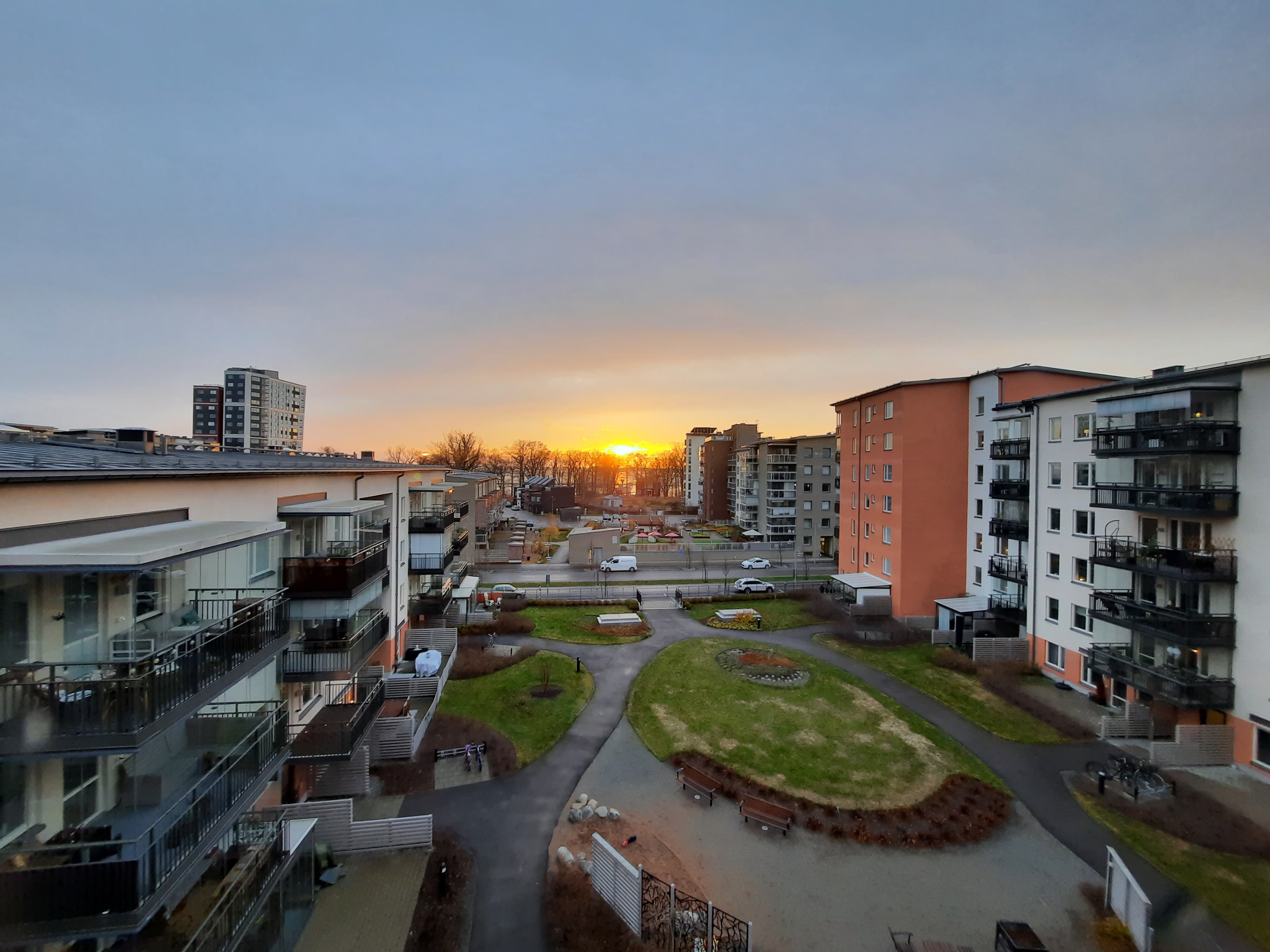 Marin and Vedrana's new neighbourhood, in Västerås, Sweden
Marin and Vedrana's new neighbourhood, in Västerås, Sweden
Why did you move from Osijek to Sweden?
Marin: There are lots of different reasons - opportunities, money, the church...It's cold. And there is a lot of snow. I like winter a lot more than summer. If it's cold, you can always put on more clothes. If it's too hot, what can you do?
Vedrana: I hate the winter and cold weather, actually. Marin wanted to come here. And my brother was already here. Maybe because it's totally different? Marin wanted to go to Ireland or Sweden. But, Ireland is a religious country, Catholic, like back home. We didn't want to live in another place like Croatia. I was here visiting, one year before we came, and it was -15. Freezing. Right now it's not so bad, around 4.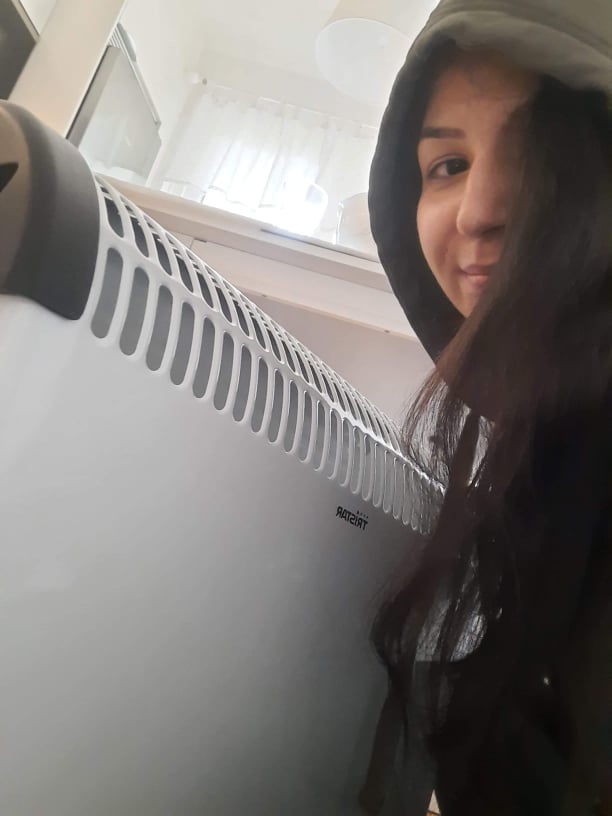
Vedrana doesn't like the cold. Marin's dream job is riding snowmobiles all day.
Marin: It can be -10 here but feel like -30 because the winds are sometimes very strong. Last winter wasn't so bad, but if you're on the windy side, it can feel really cold. I wear Christmas socks a lot. They're very warm. I have many pairs.
I saw you also have many pairs of papuče (slippers) by your front door. Why?
Marin: The tradition isn't going to die (Vedrana laughs). We brought that tradition with us from Osijek to Sweden. Most of them are for us, so we can wear different pairs, but some are for guests, although we rarely have any. We just have extra papuče that we don't use.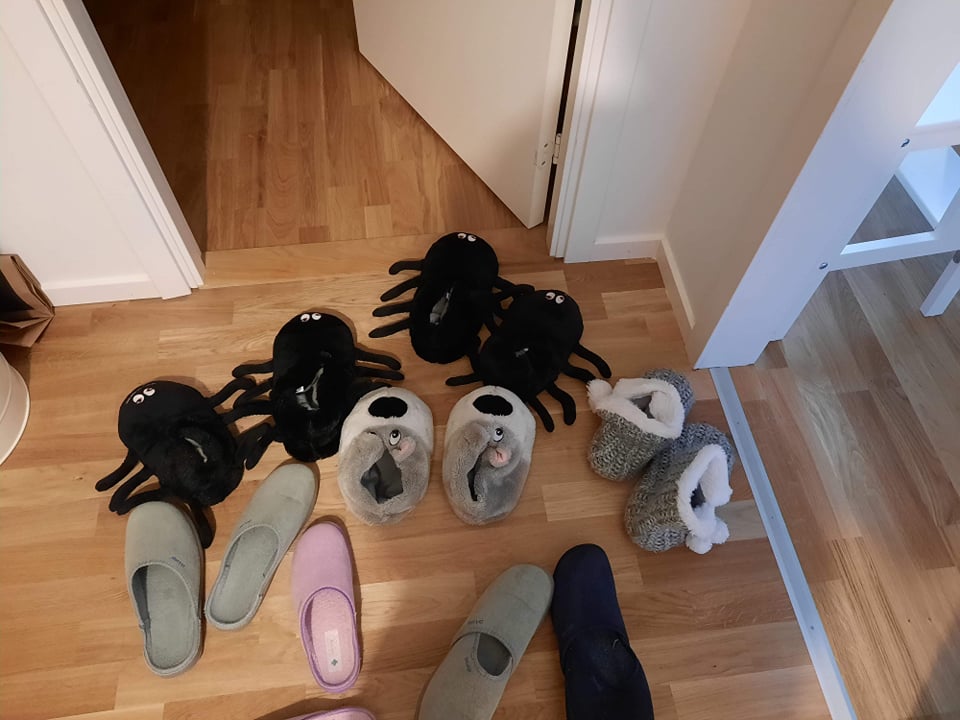 Croatians overseas: a tsunami of papuče
Croatians overseas: a tsunami of papuče
Vedrana: Our apartment here costs around 800 Euros per month. That includes water and payment for cleaning of the communal areas of the building. We pay extra for electricity, wifi and home insurance. Home insurance is mandatory. It costs around 100 Euros a year.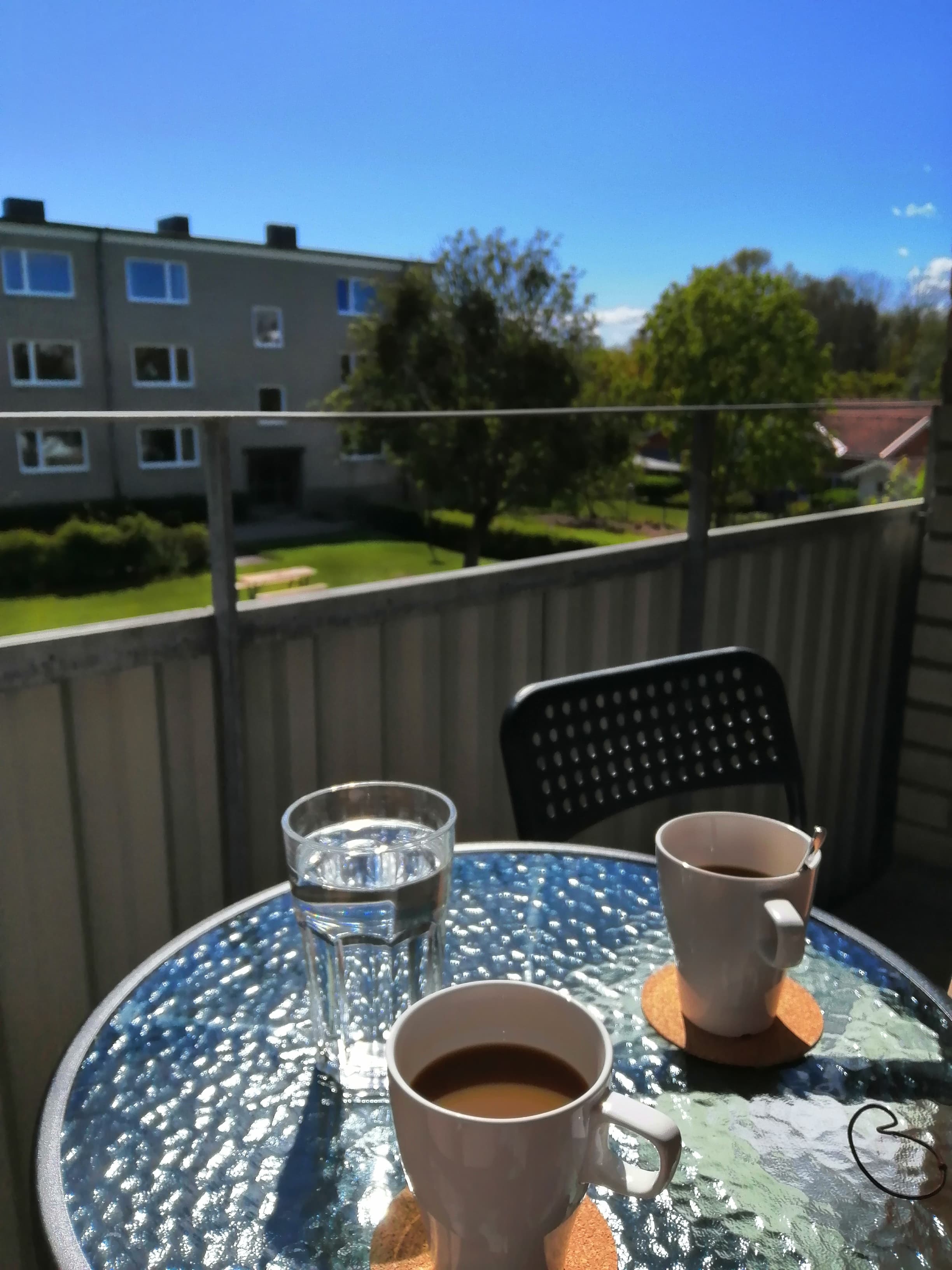
Marin: We came to Västerås because Vedrana's brother was here, but now he moved to another place. He helped us find an apartment when we first arrived. It's difficult to arrange an apartment from Osijek to Sweden with an agency - you actually have to be here. It's not something we could do online before we came.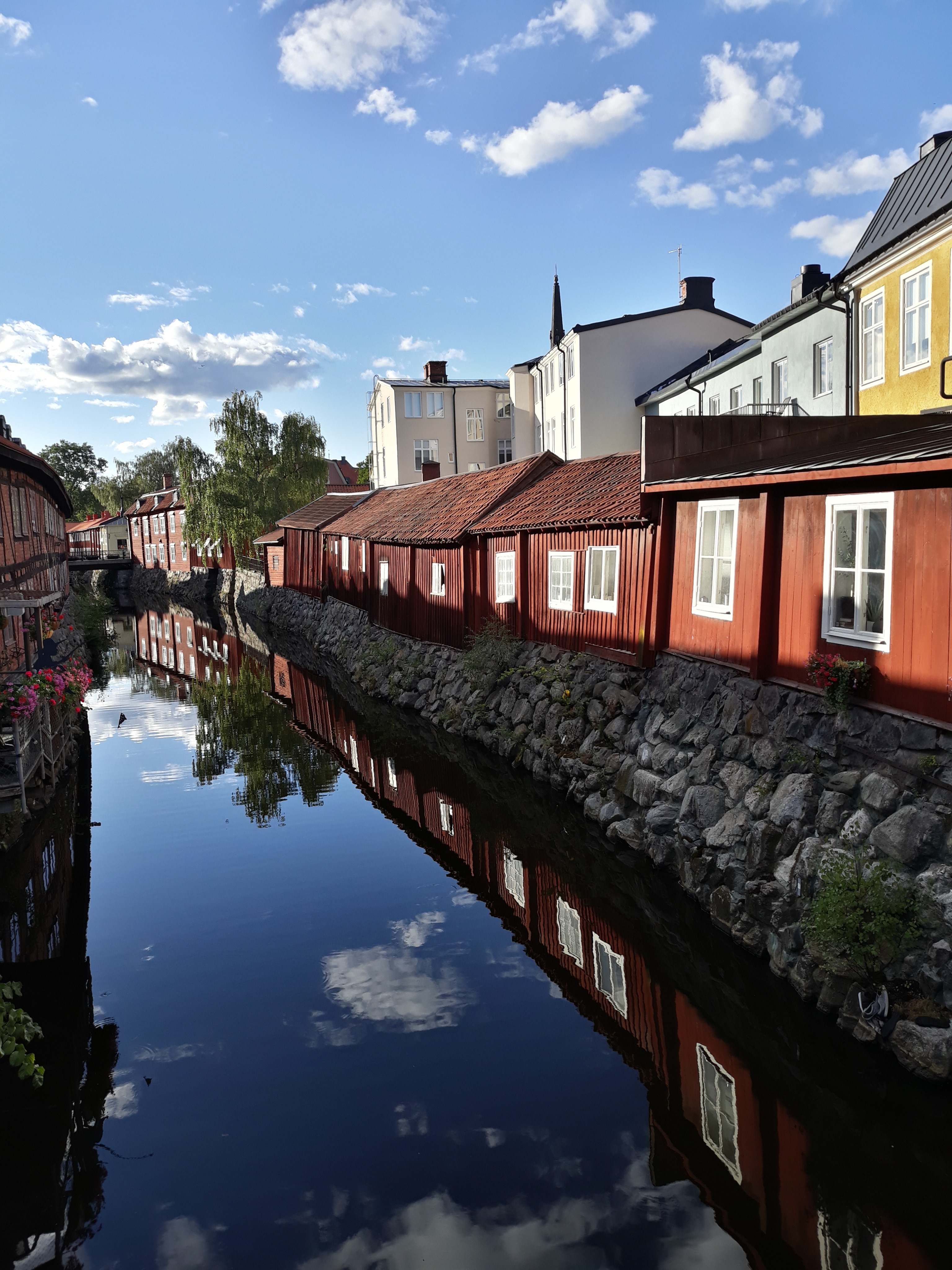
Vedrana: We were saving for around a year before we came, in preparation. We got around 30, 000 kuna. We spent it on travelling here, start up and the first apartment. My brother's wife worked in a company here and she made a recommendation for me and I started to work there. Then, I made a recommendation for Marin. Everything here is made with recommendations. Everything. Our company offers services. Anything you could think of. Home services, customer services. Sometimes you might be sent gardening, babysitting, fixing something in someone's home, painting a room, window or home cleaning, helping someone move house. Sometimes the client is a private individual, other times it's a company.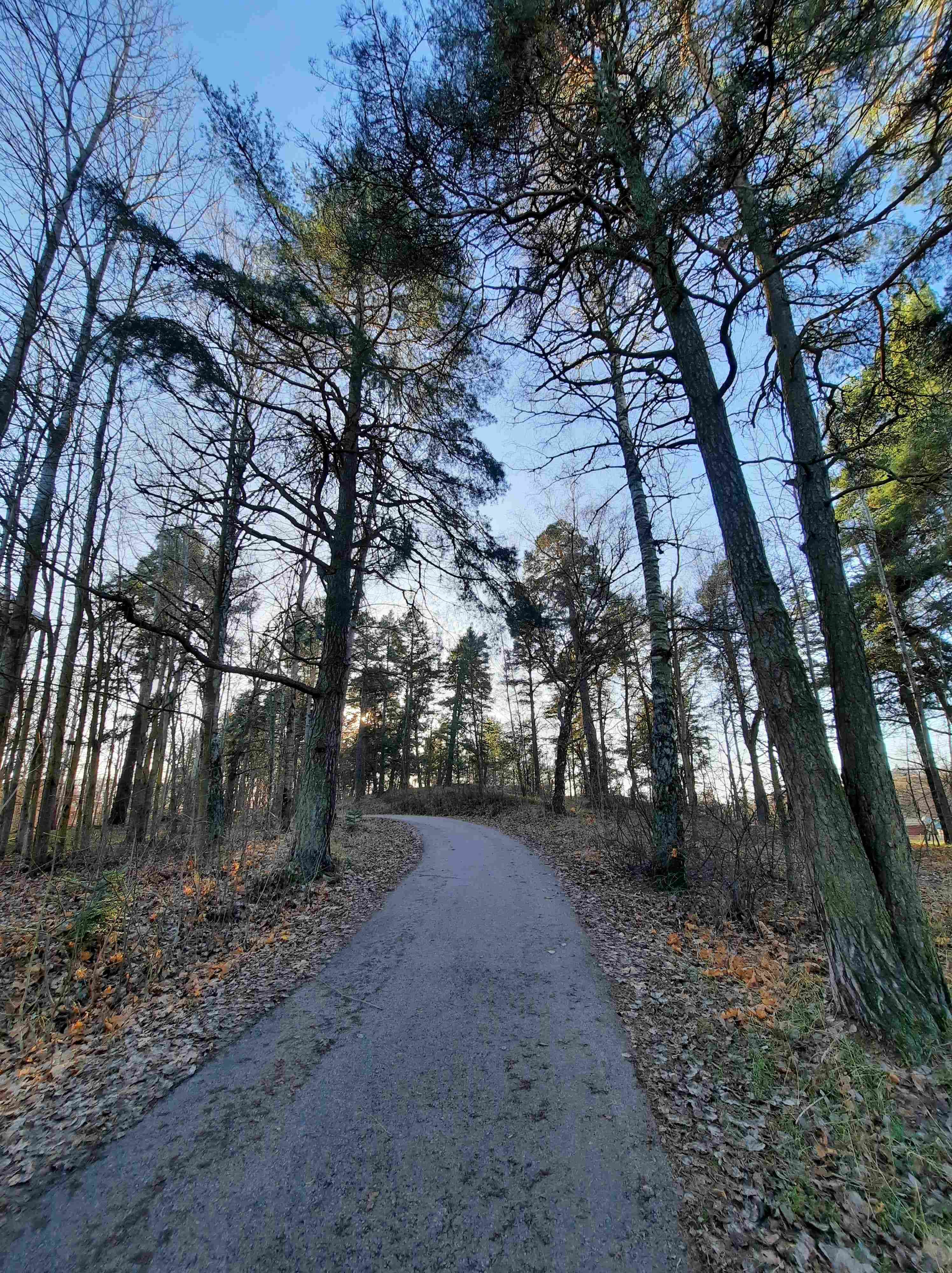
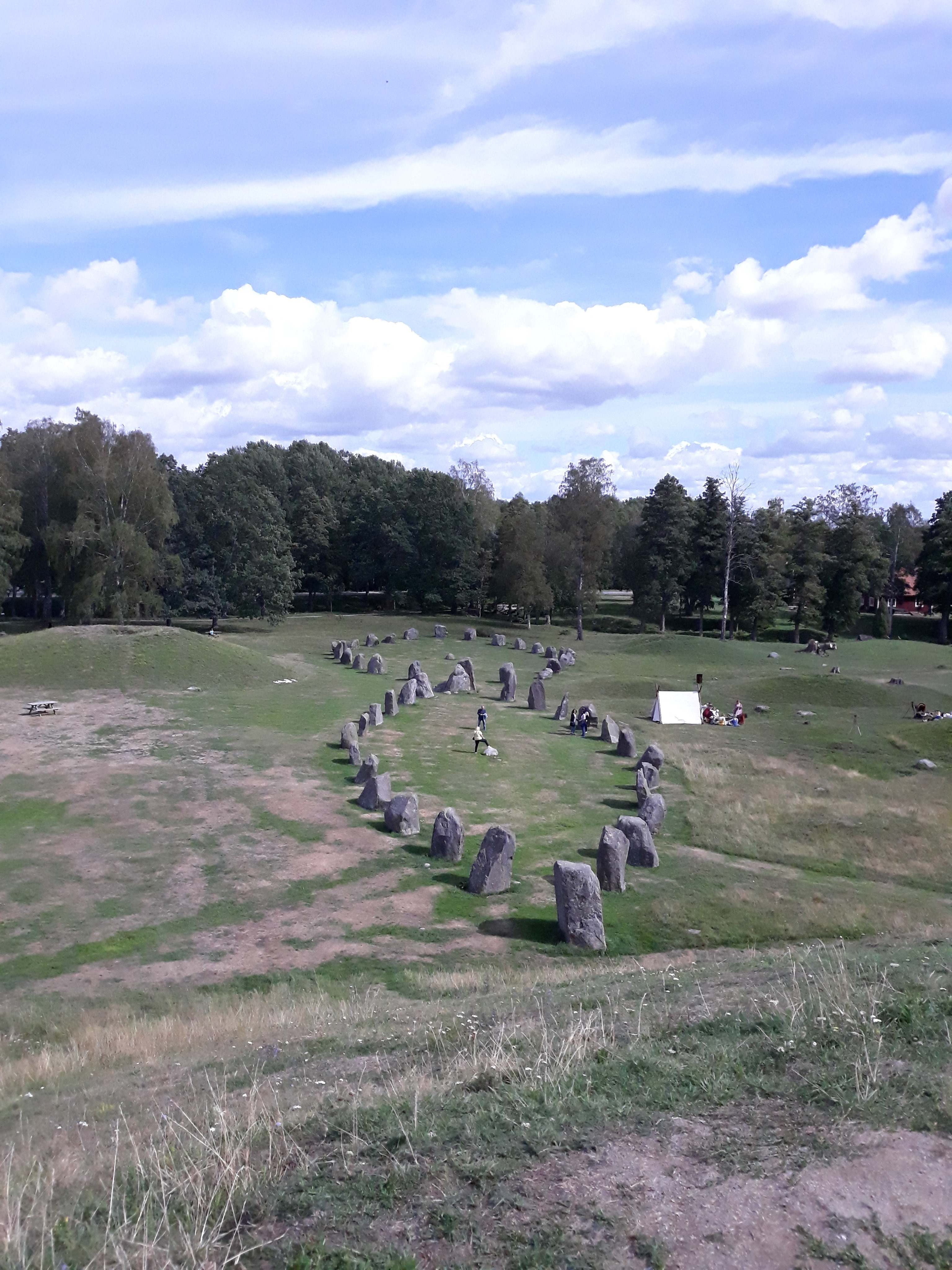 "We like going for walks here. The scenery is very different to Slavonia" Vedrana
"We like going for walks here. The scenery is very different to Slavonia" Vedrana
Vedrana: We don't work full time here. We work around 75% of a full-time job. So, it's part-time. But still we have enough money to live and much more than back in Osijek. In Osijek, for working in the store full time, I earned 400 Euros per month. As a waiter, Marin earned around 600 Euros per month, depending on tips. Here, after tax, we earn around 1200/1300 Euros each. Sometimes Marin earns more because he can drive and so he can be sent outside of the area to do jobs. He is paid for his driving time.
Vedrana: Around one week ago, I bought myself some boots for 200 Euros. I would never have been able to do something like that in Osijek. When we went food shopping in Osijek, we always went with a list. If you didn't have a big salary, like us, you have to count what you are spending. Here, we don't do that. If I see something that I like, I will buy it.
What jobs would you like to be doing there?
Marin: I would like to work as a graphics technician or as a waiter again. I like being a waiter, I like working in hotels. Of course, my dream job would involve driving a snowmobile all day.
Vedrana: I would like to be a care assistant, but I need to learn Swedish first and then go to school.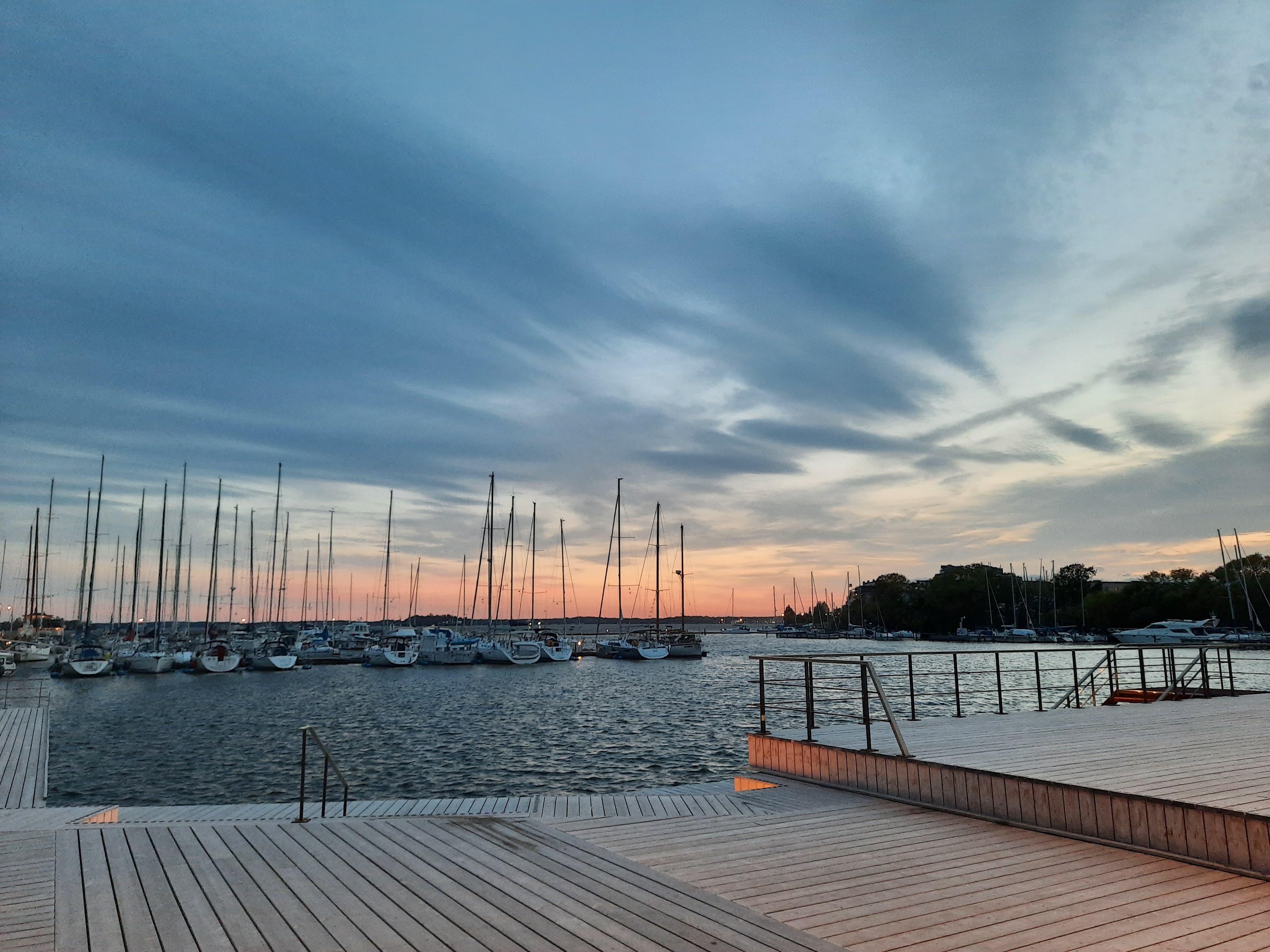
Marin: We had nothing when we arrived. We had two small chairs and we borrowed a thin mattress from her brother that we slept on. We bought pans, pots, plates, glasses and knives and forks first. Next, we bought a table and chairs. Then, we acquired a bed, we bought a sofa. After that, we stopped buying anything until we found an apartment that we could see ourselves living in for a long time. That's the one we are in right now, it's our third apartment here.
Did you meet any other people from the Balkans in Sweden?
Vedrana: Yes. I met a lady in an apartment agency. She took our ID details to check our backgrounds and when she saw our names, she said “Maksimovic? Where are you from?”, in English. When we said “Croatia”, she said “Pa mozemo i ovako pricati (well, we can talk like this)”. She was from Sarajevo. She came here 10 years ago. Another time, I went to a woman's apartment to work for the day. As a client, she already had my name and details. When she opened the door, I said hello and asked if she spoke English. She replied. “Možemo pričati na našem”. Her name is Elena and she is from Belgrade. We still see her sometimes, she is nice. She's been here around 20 years.
How difficult it is to learn Swedish?
Vedrana: It's really hard.
Marin: It's easy. I started when we were still in Croatia, just to get some basics. A few months ago, we started school. I learned English and German in both elementary and secondary schools. You can see the associations of those languages with Swedish.
Vedrana: The accent is difficult. You must make different sounds with your mouth than we have in Croatian. It's a very beautiful language when you hear it. It's not like German.
Marin: They sound funny when they talk. It sometimes sounds like they are singing.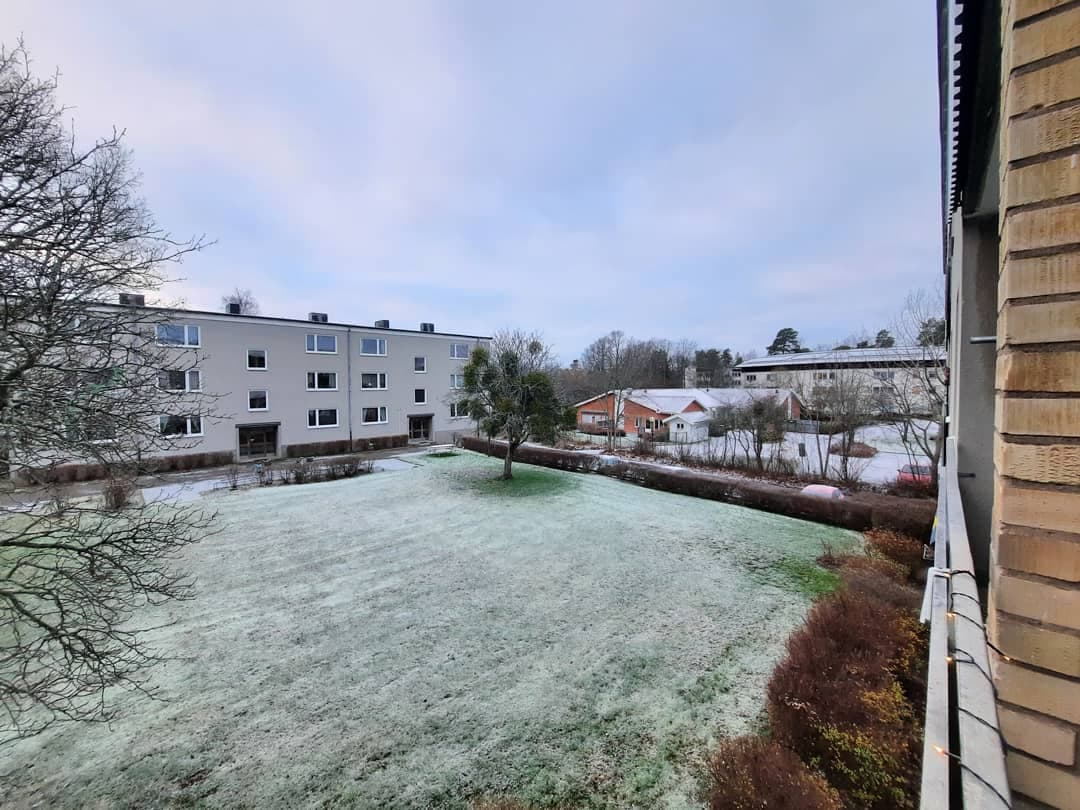
Would you move to a different city in Sweden if the right job opportunity was offered to you?
Vedrana: Yes. I would like to go to Gothenburg or Stockholm. It's more urban there, more to see and do, and more opportunities.
Marin: I would like to go to the north of Sweden. It's even colder and more remote there. And more snowmobiles. But, they only do mining there, and I don't know how to mine, so I'm not sure if I could find something there.
How different is the food in Sweden?
Vedrana: We don't eat meat, so we got used to cooking for ourselves at home before we moved from Osijek to Sweden. So, we haven't noticed a big change in what we eat. We do both eat fish. The kinds of fish you can buy here are really different. We sometimes eat salmon steaks. You never really saw those much in Osijek. Salmon is not so expensive here like it is in Croatia.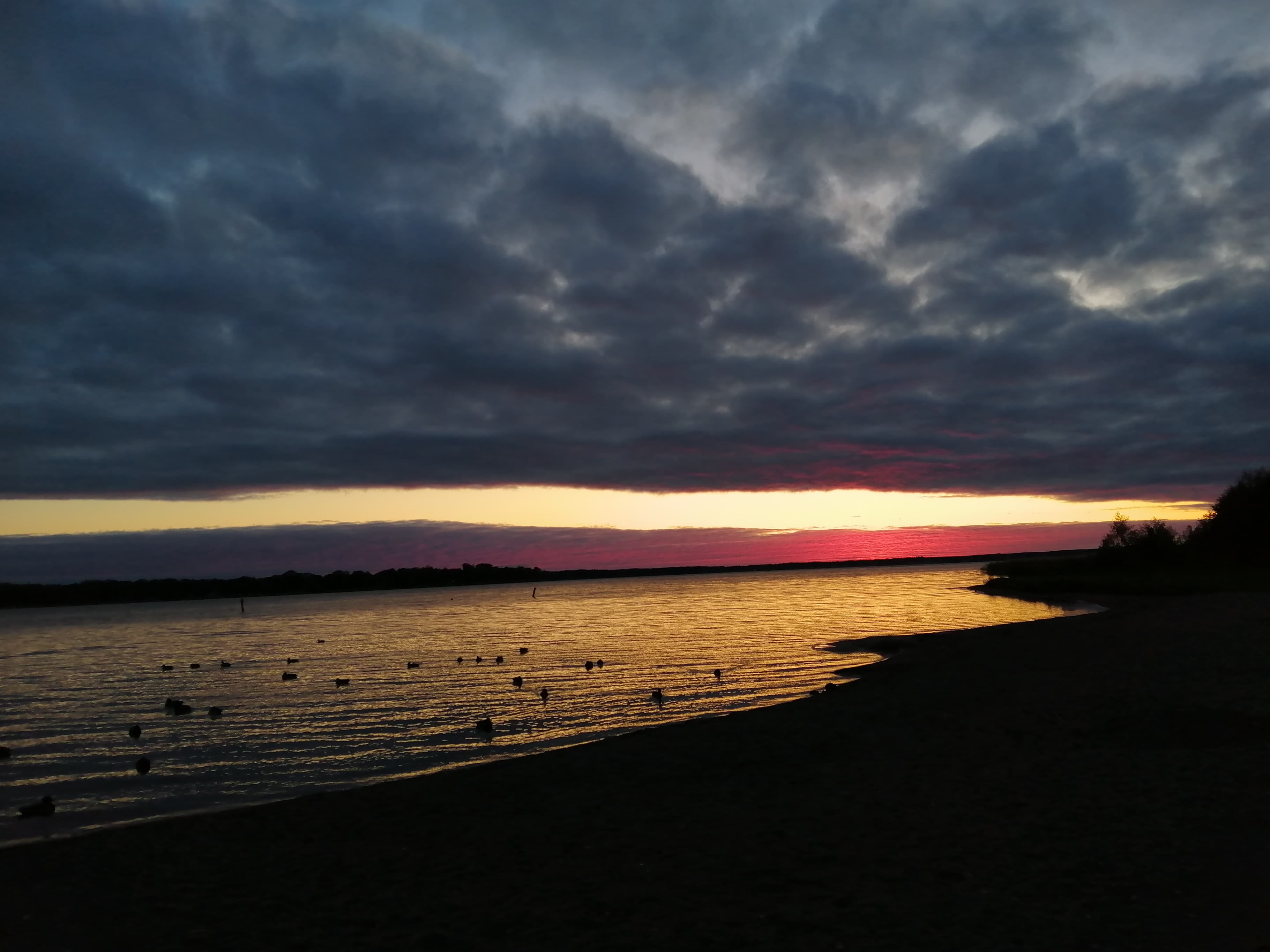 "In the summertime, it is light all the time. The sun comes up around 3am and stays up until 11pm, but there is light all the time. I like it. I don't have trouble sleeping through it. Marin did, at first. In winter, there is no sun. It gets lighter around 9am and that lasts until around 3pm. But, there is no sun. It's like that from late October until March" Vedrana
"In the summertime, it is light all the time. The sun comes up around 3am and stays up until 11pm, but there is light all the time. I like it. I don't have trouble sleeping through it. Marin did, at first. In winter, there is no sun. It gets lighter around 9am and that lasts until around 3pm. But, there is no sun. It's like that from late October until March" Vedrana
Marin: People are a lot calmer here. Driving is different. There are not so many cars on the road in Osijek, but here, nobody sounds their horn at you or sticks their middle finger up at you because they don't like the way you drive. Nobody seems to be in a rush.
Marin: Alcohol is expensive here if you go to a bar or club. In Osijek, you pay maybe double the price for beer in a bar that you would in the supermarket. Here, the beer you buy for 15 kronas in the store you would pay 70 kronas for in a bar. But, it's not so expensive to go out if you work full time.
Vedrana: Here, you cannot buy alcohol in a store or a supermarket like back home. You have to go to the special Systembolaget store to buy it. You must be 20 years old, it closes at 8pm in the evening, it closes at 3pm on Saturday and is closed on Sunday.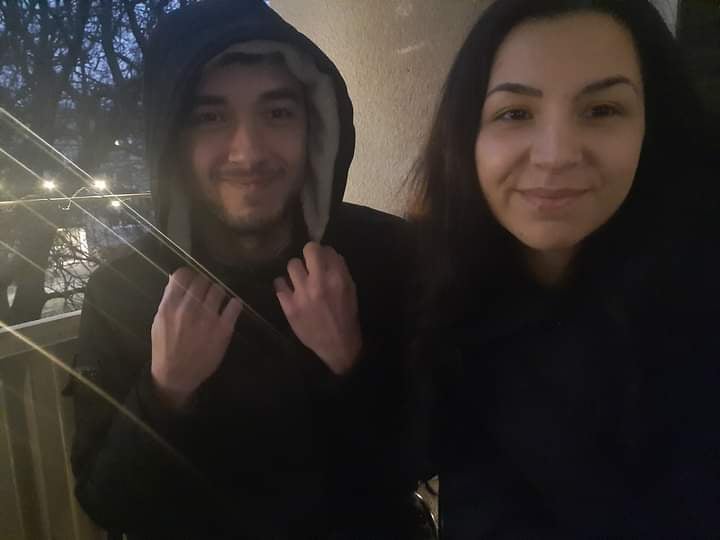
Marin: When you move from Osijek to Sweden, you can meet people from all over the world. It's not like Slavonia. We have neighbours from India. We speak together in English. We have a friend from Sri Lanka. I met a guy at work who is from Africa.
Do you ever regret moving from Osijek to Sweden?
Marin: Not sure yet. We don't regret it, but sometimes we feel nostalgic. But we realise that is amplified by this COVID situation – there's just not been any opportunity to travel back home and visit family and friends.
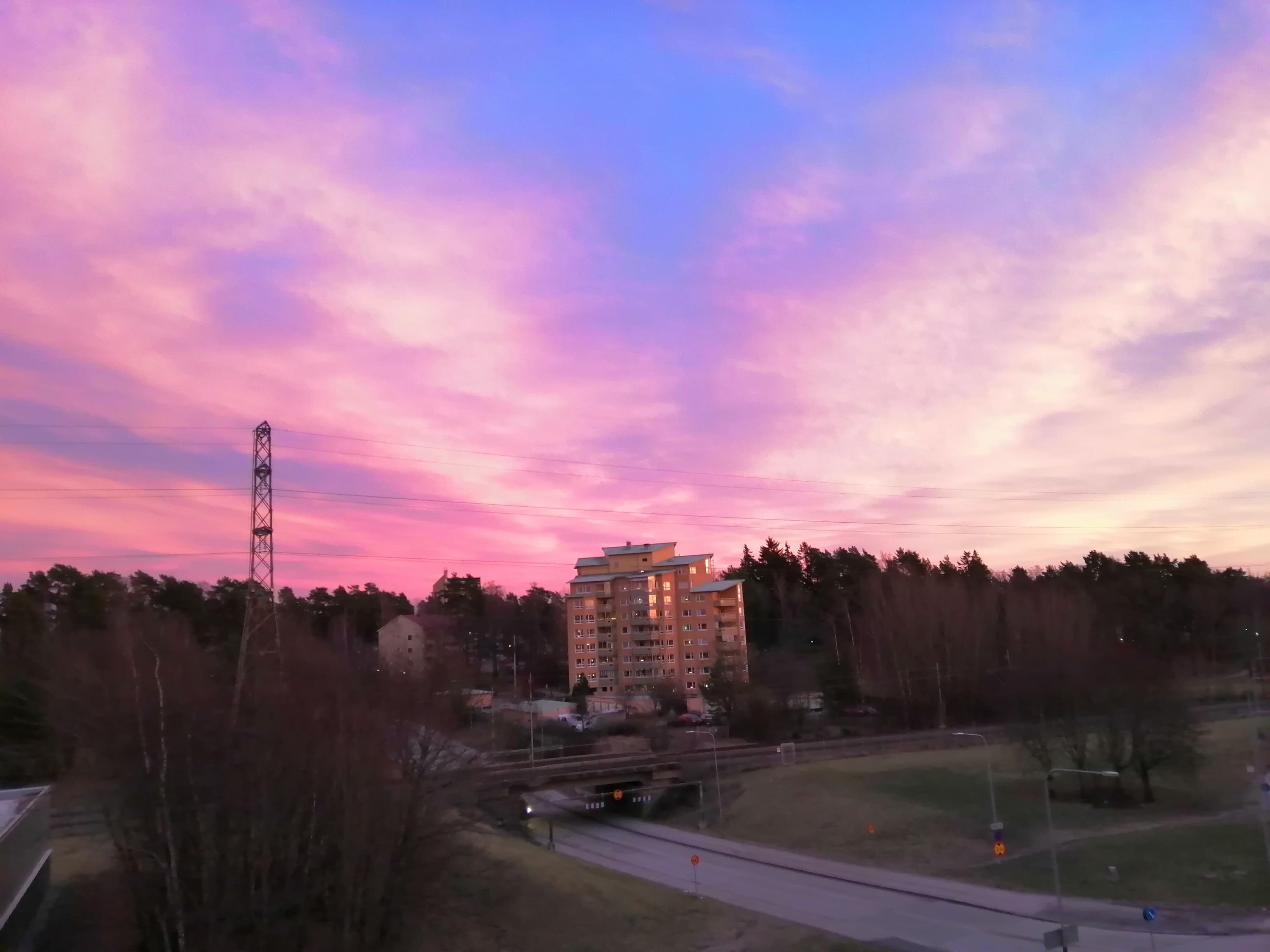
Croatians Twice as Likely to Die From Treatable Diseases Compared to EU
Croatian Parliament MPs Božo Petrov and Ines Strenja emphasized that, despite the dismissal of Health Minister Milan Kujundžic, problems with Croatian health system have not gone away. They also pointed out that Croatians are twice as likely to die of treatable diseases as citizens in more developed European countries.
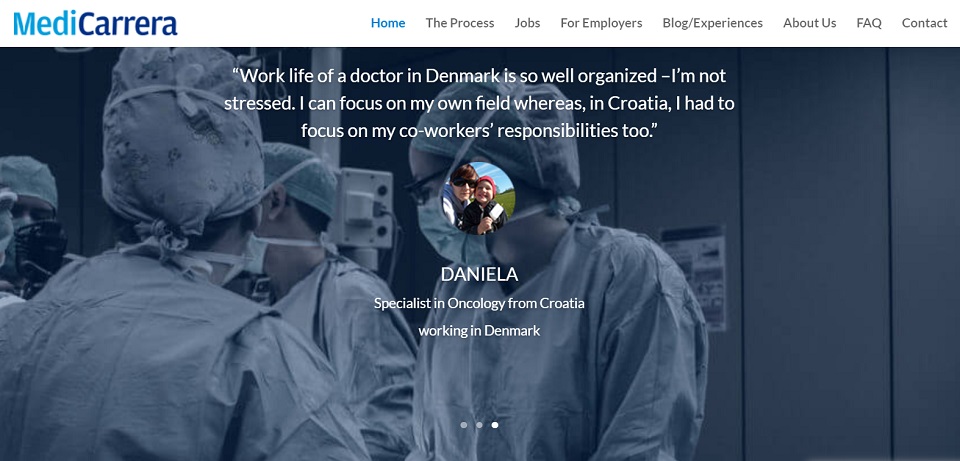
MediCarrera | Screenshot
Medical Staff Leaving Croatia: Remainers Working Unpaid Overtime
"After three and a half years of inaction, it is time to start treating chronic illnesses in the Croatian healthcare system. The system is in debt, irrationally organized, filled with red tape and waiting lists while doctors and other medical staff are leaving Croatia (for opportunities abroad). Those who remain, like nurses, are at a disadvantage and are being forced to work unpaid overtime hours,” Petrov pointed out.
Scandinavia Offers Croatians Free Relocation, Language Training, Child Care
Indeed, more financially prosperous EU countries have set up one-stop recruiting sites to lure medical professionals to their countries to the further detriment of Croatian citizens and residents. MediCarrera, a website serving the medical career recruitment needs of Denmark, Sweden and Norway; offers job placement, language training for hires and their families, accommodations and relocation costs; all of which are financed by employers in their respective countries.
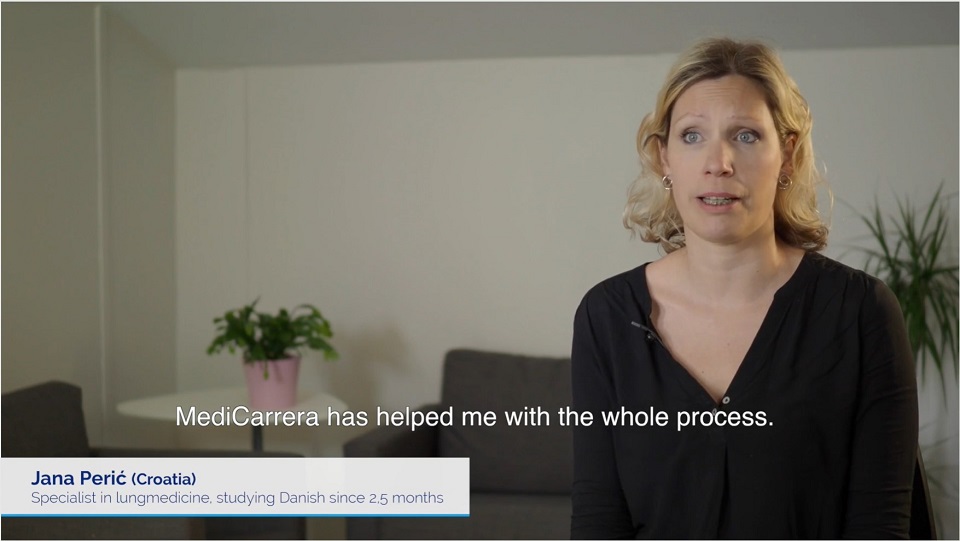
MediCarrera | Screenshot
Several Swedish media outlets have recently criticized Croatia for its demographic losses and emigration.
Despite these external and internal challenges, Petrov insisted to members of the Croatian government that Most would not let them continue policies of inaction which had defined the former health minister's term according to Index on February 14, 2020.
Croatians Have Highest Mortality Rate for Treatable Diseases
Strenja pointed out that Croatian citizens continue to occupy high, and sometimes the highest, mortality rates among all EU citizens for avoidable and treatable diseases.
The reason, she said, lies in the lack of effective preventive medicine, timely diagnosis and the timely beginning of treatment.
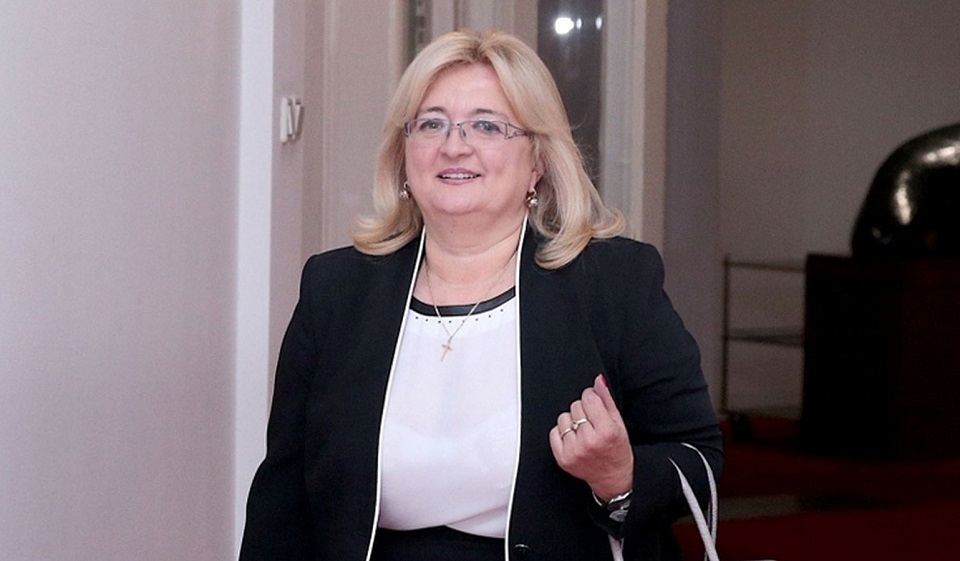
Ines Strenja | Most
Strenja: Investing in Preventative Medicine Yields Fourfold Savings
"Again, unrefined protocol, procedures, measures and responsibilities will continue to miss desired expectations, which is ultimately evident in the overall health data. We emphasize that the investment in preventive medicine is the best bet and yields fourfold savings in treatment," Strenje explained.
She added that ex-Minister Kujundžic's files contain proposals for national strategies that would lower the death rate in Croatia from preventable diseases which is currently 293 per 100 thousand inhabitants compared to 140 per 100 thousand in the EU. The mortality from treatable diseases in our country is 140 per 100 thousand compared to only 90 out of 100 thousand in the EU.
“Therefore, I am calling on the new Health Minister, Vili Beroš, to discharge them and move on to combat chronic non-communicable diseases and conditions in Croatia,” Strenja urged.
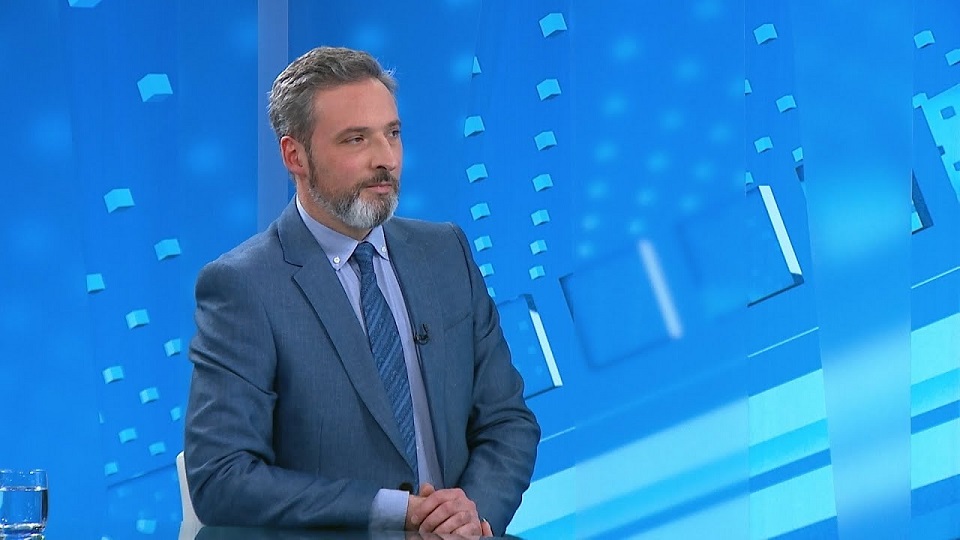
Ivan Bekavac | N1
Bekavac: Action Plan Another 'Wish List'
Ivan Bekavac, Advisor for Most’s Health Council, pointed out that two key documents should guide the future of Croatians: The Draft Proposal for the Prevention and Control of Chronic Non-Communicable Diseases 2020-2026 and the Draft National Cancer Plan 2020-2030.
"The Action Plan for the Prevention and Control off Chronic Noncommunicable Diseases 2020-2026 does not sufficiently emphasize the responsibility of the Croatian government for the health of the population, because it must place much greater emphasis on the coordination of all departments in promoting and preserving health. It is just a wish list of suggestions, and is almost identical to the previous action plan, and again lacks elements of supervision, monitoring, performance evaluation and research," he explained.
He also considers it a disadvantage that the Draft National Cancer Plan 2020-2030 omitted family medicine doctors who are most familiar with their patients, their habits and family heritage, and emphasized that they should be key stakeholders in encouraging and mobilizing patients for preventive examinations.
Follow our Politics page to keep updated on the health care crisis in Croatia.
Croatia Searching for Fighter Jets Again, Negotiations with USA and Sweden
The recent fighter jet story was a bit of a flop (yes, that's an understatement) for Croatia, but it seems that not all is lost, despite the entire situation having been made the butt of numerous jokes ever since.
As Poslovni Dnevnik writes on the 18th of May, 2019, a delegation from Sweden was led by an individual from FMV, a state-run company that deals with arms export operations.
Throughout 2019, the Croatian Government will try its hand at yet another attempt to procure some fighter jets. It appears, despite the total and utter failure to reach a deal with Israel and Croatia's previously desired acquisition of some F16's, that the government just isn't giving up on its plans.
As Vecernji list reports, after the Croatian Military Delegation returned from the United States over a month ago from the initial round of talks about the aircraft, the same type of initial meeting was held on the 8th of May, but with the Swedes, in which Croatia's "interest" was activated once again, this time for the purchase of the JAS-39 Gripen.
The delegation to the United States was headed by General Mirko Šundov, while Robert Hranj was placed in charge of the talks on the specific topic of the aircraft. All that was found out after that was that from the American side, no offers on the aircraft had been made.
As for the Swedes, they showed somewhat greater ambition. As Croatia's delegation had returned from the United States visibly disappointed, and they'd even heard that the Americans were astonished when they realised that Croatia still had a firm intention to acquire those jets, MORH set up a similar meeting, but this time with the Swedes.
As stated, the delegation from Sweden was led by an individual from FMV, which is a state-run company that runs and deals with arms export operations. In addition, there was also a representative of SAAB, the manufacturer of the JAS-39 Gripen aircraft. The Croatian delegation consisting of ten persons was headed by Hranj.
Make sure to follow our dedicated politics page for much more.


